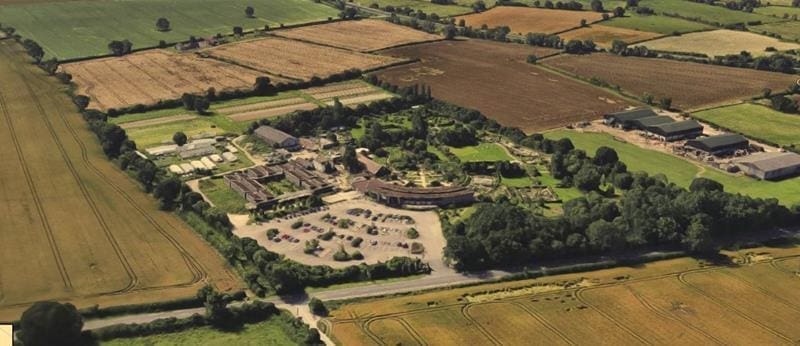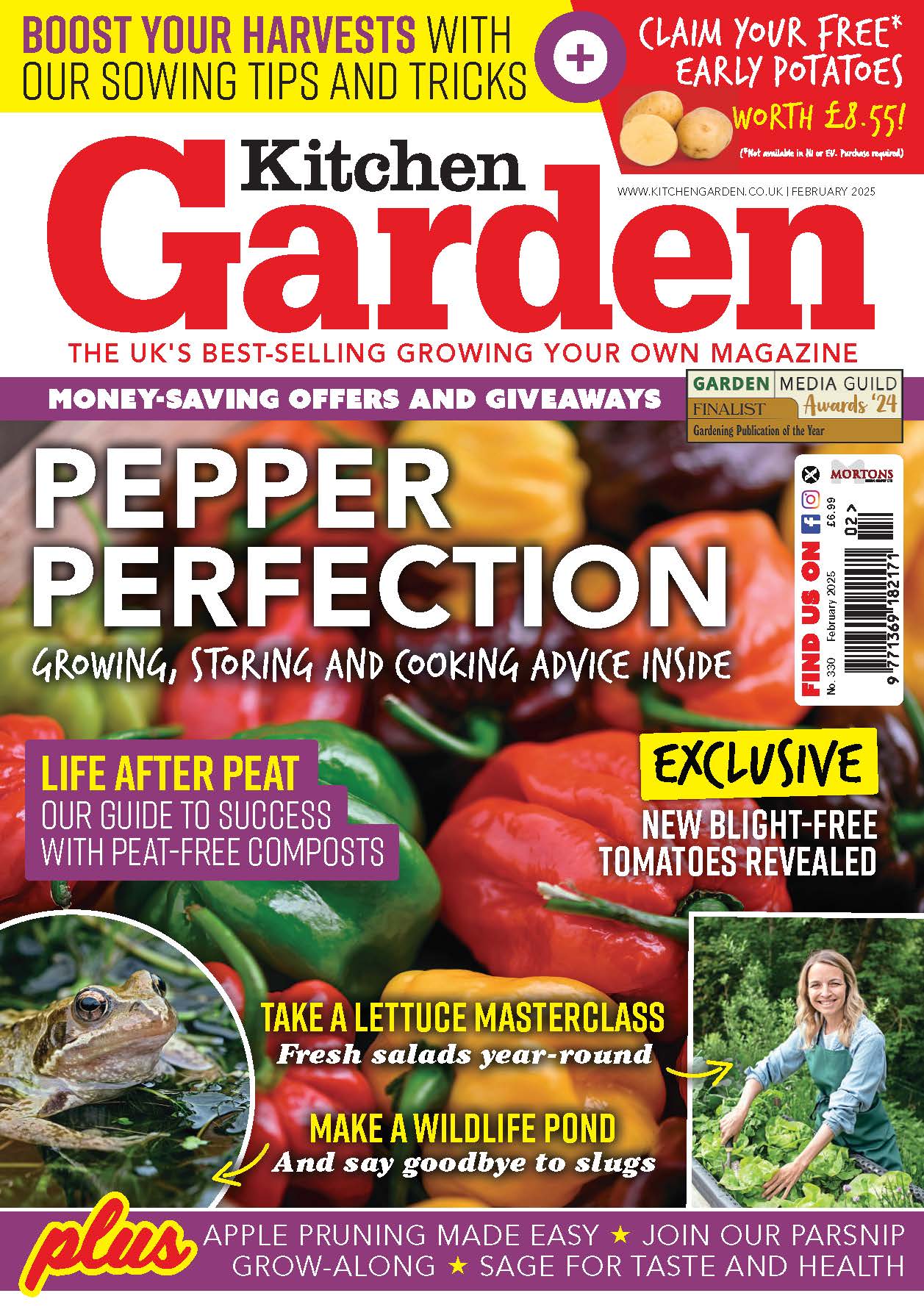Find out more about this and other key gardening news items in our first February Subs Club, exclusively for subscribers to Kitchen Garden
Ryton up for sale
Garden Organic members have reacted with shock to the discovery that Ryton Organic Gardens is now being marketed for sale. In September, the charity wrote to its members to say that the running costs of its Ryton base were limiting its potential, and that it would be exploring “a number of options for the site.” It went on: “We are telling you now because we wanted to be open with you about our plans for the future of the charity… we will keep you informed every step of the way.”
No more information was forthcoming until late January, when news started to circulate on social media that Ryton was already listed on the website of estate agent Bruton Knowles (below). Only then did Garden Organic put a statement on its website, saying: “We are still exploring all possible options that will release the financial pressure that comes with owning and managing the land and buildings, and as part of this process the site is being marketed by property advisors… We will continue to keep members informed about our plans for Ryton…”

The latest news – courtesy of Horticulture Week – is that Ryton is expected to sell for between £3m and £4m. Residential developers and care home operators are said to have expressed interest in the site, and formal offers are to be submitted on February 15.
“There is potential for change of use as residential and for redeveloping the site for up to 54 dwellings,” the estate agent is quoted as saying. There are restrictions on potential uses as it is green belt land, but while the local council will, apparently, look more favourably on applications that would retain some of the gardens, “it is not a necessity”.
Some of Garden Organic’s 20,000 members – noting, among other things, that the ashes of the charity’s founder, Lawrence Hills, are scattered at Ryton – have started a campaign to save the gardens. Keep up with the latest at https://twitter.com/Save_Ryton_Gdns
Research reveals how not to dig
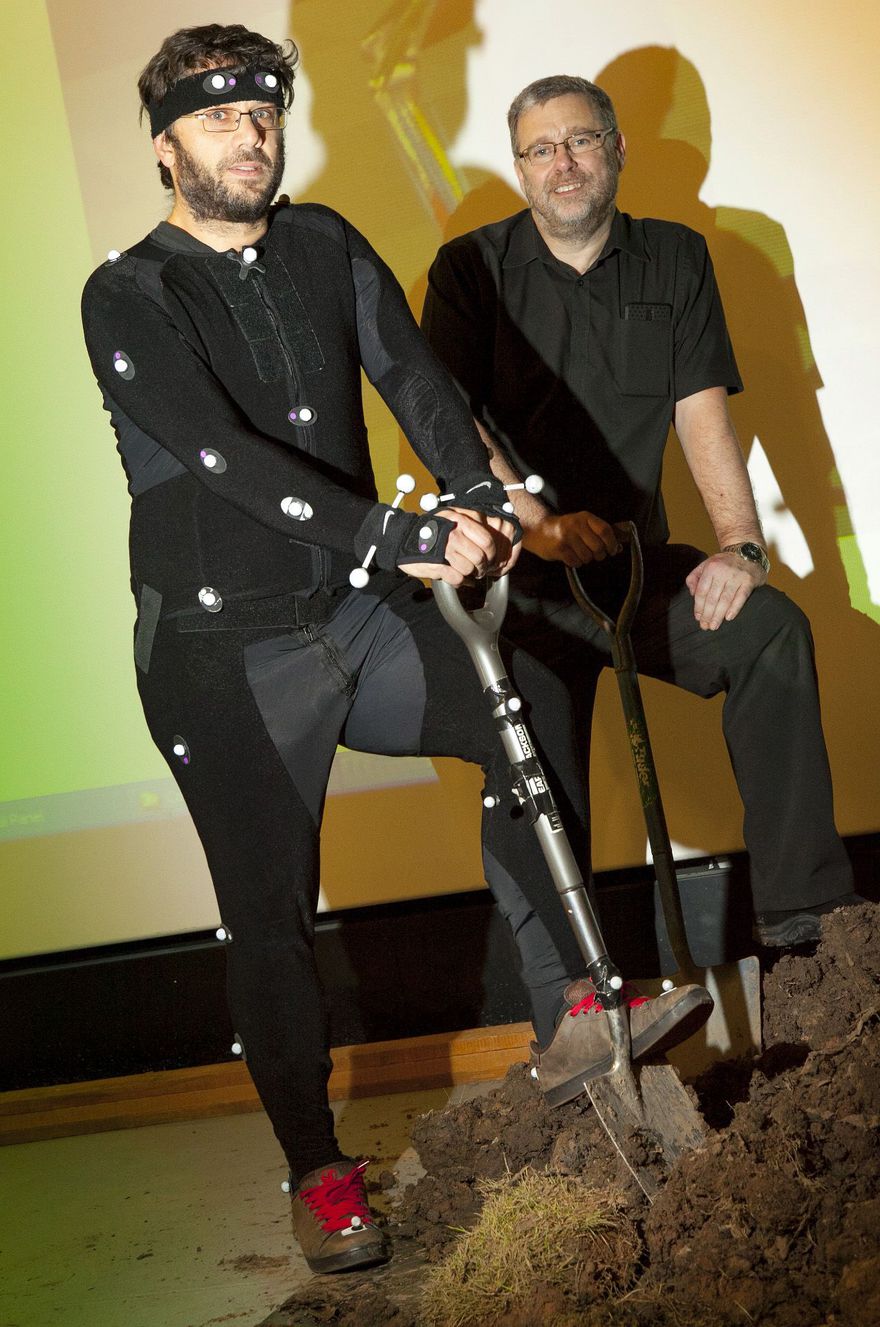
The researchers, kitted out for digging analysis…

… and a computer-generated model of the results. Pictures: Coventry University/RHS
New research by Coventry University and the RHS reveals that a bad digging technique can double the load on your joints, leaving you susceptible to chronic injuries.
The researchers employed 3D optical tracking equipment normally used in the production of animated films and in hospital laboratories. Participating gardeners had reflective balls attached to them at key anatomical points, and they were then filmed using high-speed infra-red cameras. This allowed their movements to be captured digitally.
The data was then analysed by BoB, a computer programme developed at Coventry University. BoB contains a model of the human skeleton, major joints and more than 600 muscles associated with movement, enabling the researchers to calculate the internal loads imposed on each participant’s joints, bones and muscles.
They found that loads in the lumbar region of the back – where many gardeners complain of aches and pains – could be increased by half as much again for a bad posture. The shoulders were even more sensitive; more than double the load was generated by a bad posture. Large loads at joints are associated with increased risk of osteoarthritis, the most common form of joint disease.
Good gardening practice involves using a regular, repetitive technique rather than erratic movements. A good technique was found to have minimal back bend and large knee bend, whereas a bad posture was characterised by large forward bending, stretching limbs and uncontrolled motion.
Find out more at http://www.coventry.ac.uk/primary-news/new-research-reveals-how-gardeners-can-dig-for-health-not-injury/
Homes for people and wildlife
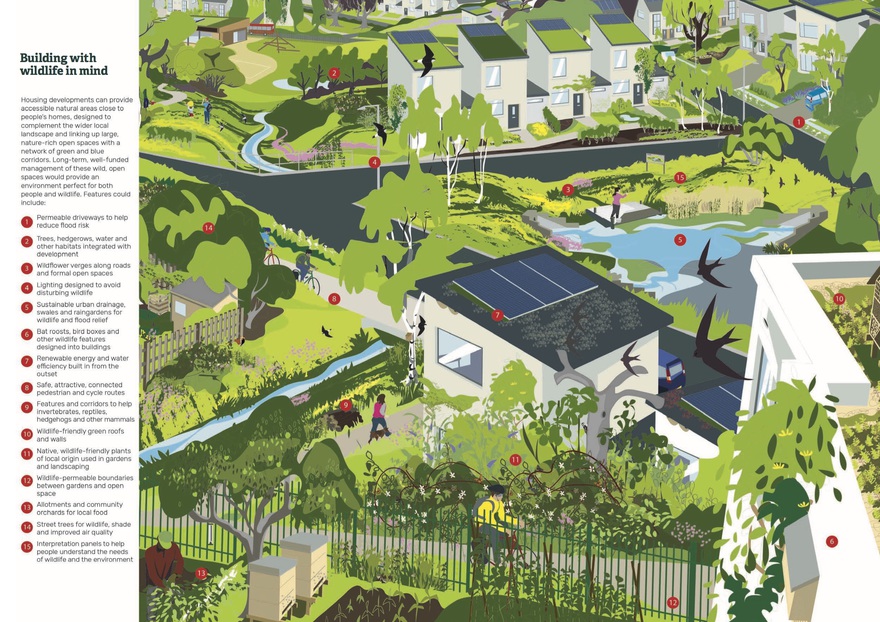
Harmony: Homes for people and wildlife
New guidelines from The Wildlife Trusts show how housing developments can be built in a way that provides people with greener homes and helps to reverse wildlife habitat declines. Strikingly, they make virtually no mention of private gardens; the challenge, as The Wildlife Trusts see it, is to build high-density housing for people who don’t necessarily want their own gardens – but still to incorporate green spaces within the developments.
The Government has recently committed to building 300,000 homes a year until 2022. This means that about 36 square miles will be given over to new housing developments annually – an additional area larger than Brighton and Hove every year.
Rachel Hackett, living landscapes development manager for The Wildlife Trusts, says: “A huge challenge lies ahead – thousands of new houses are to be built yet we need to restore the natural world. We’re calling on the Government and local authorities to build beautiful, nature-friendly communities in the right places. Over the past century we have lost natural habitats on an unprecedented scale. Yet nature has its own innate value. It also makes us happy and we depend on the things that it gives us. Our new guidelines show that it’s possible to have both, so people can enjoy birdsong, reap the benefits of raingardens which soak up floodwater, and plants that bees and other pollinators need to survive.”
“It’s possible to create nature-friendly housing by planting wildlife-rich community green spaces, walkways, gardens, verges, roofs, wetlands and other natural features. These gains for wildlife improve people’s health and quality of life too.”
Find out more at http://www.wildlifetrusts.org/news/2018/01/11/new-guidelines-call-homes-people-and-wildlife
Final month for winning photos
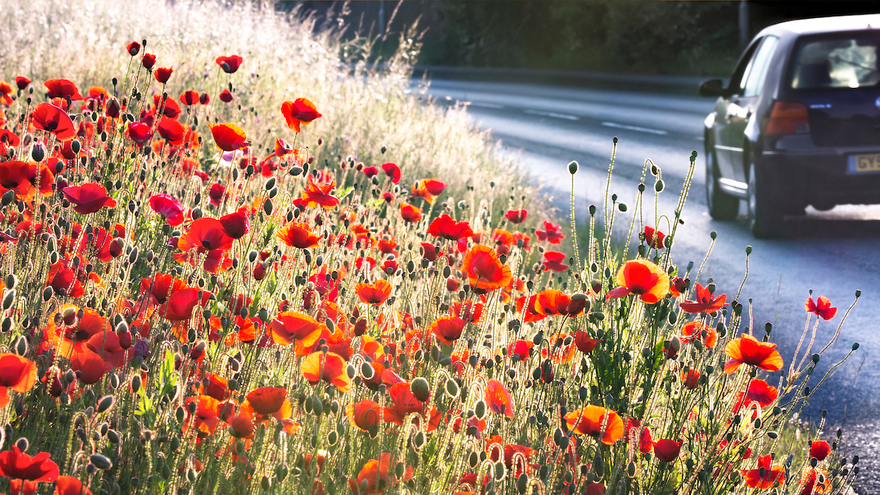
RHS photo competition: An Urban Roadside Poppy Meadow by Nigel Burkitt, winner of the Greening Grey Britain category in 2017. Picture: Nigel Burkitt/RHS
The RHS is calling for final entries to the annual RHS Photographic Competition. This is free to enter, and you can submit your pictures online until March 1.
Chris Young, chair of the judging panel and editor of RHS magazine The Garden, says: “We are surrounded by the beauty of plants, garden and nature, so this photography competition is the perfect way to celebrate the diversity of our world around us. There is a category for everyone, and we want to share our passion – through images – with all our different audiences.”
Winning photographs will feature in a new exhibition to be held at the RHS London Plant and Art Fair from July 11 to 12. The exhibition will then tour the four RHS Gardens at Wisley, Hyde Hall, Rosemoor and Harlow Carr. Cash prizes will be awarded to first, second and third places in each category from an overall prize fund of £10,000.
This year’s nine categories are: Celebrating Gardens, Welcoming Garden Wildlife, Pure Plants, Abstract, Urban Gardening, Social Media, Under 18s, Under 11s and Portfolio. For the Social Media category you can submit your images via the RHS Twitter, Instagram or Facebook accounts using the hashtag #RHSphotocomp.
Find out more at https://www.rhs.org.uk/Promotions/rhs-photo-competition
The robin, the boar and the gardener
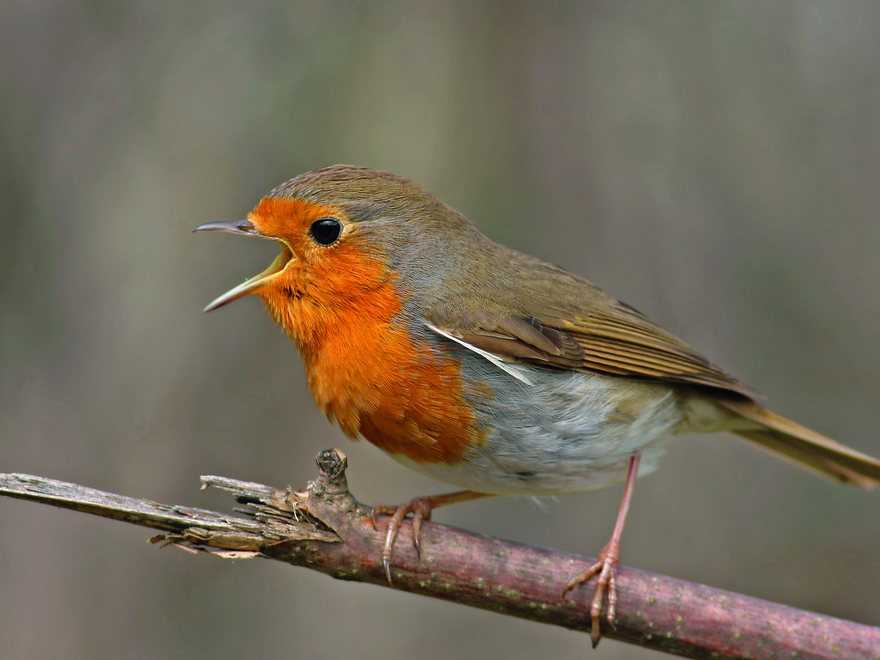
Robin redbreast: he doesn’t need to tweet his news!
A recent tweet from environmental activist George Monbiot passed on an intriguing piece of information for gardeners: robins, apparently, regard us as substitute boars.
Robins evolved a relationship with boars – ‘the robin is to the wild boar what the oxpecker is to the buffalo,’ says Monbiot – following them around to pick up the invertebrate food that they unearthed as they rooted around the forest floor. As wild boars died out in Britain, our robins learnt to make do with gardeners’ altogether less efficient earth-turning efforts.
There’s also some lovely robin-related reading at https://www.theguardian.com/environment/2013/aug/07/robin-redbreast-my-friend This Guardian article describes how ecologist Hugh Warwick trained a robin to take food from his hand – but, he reflects, does the gardener teach the robin, or the robin train the gardener… ?

